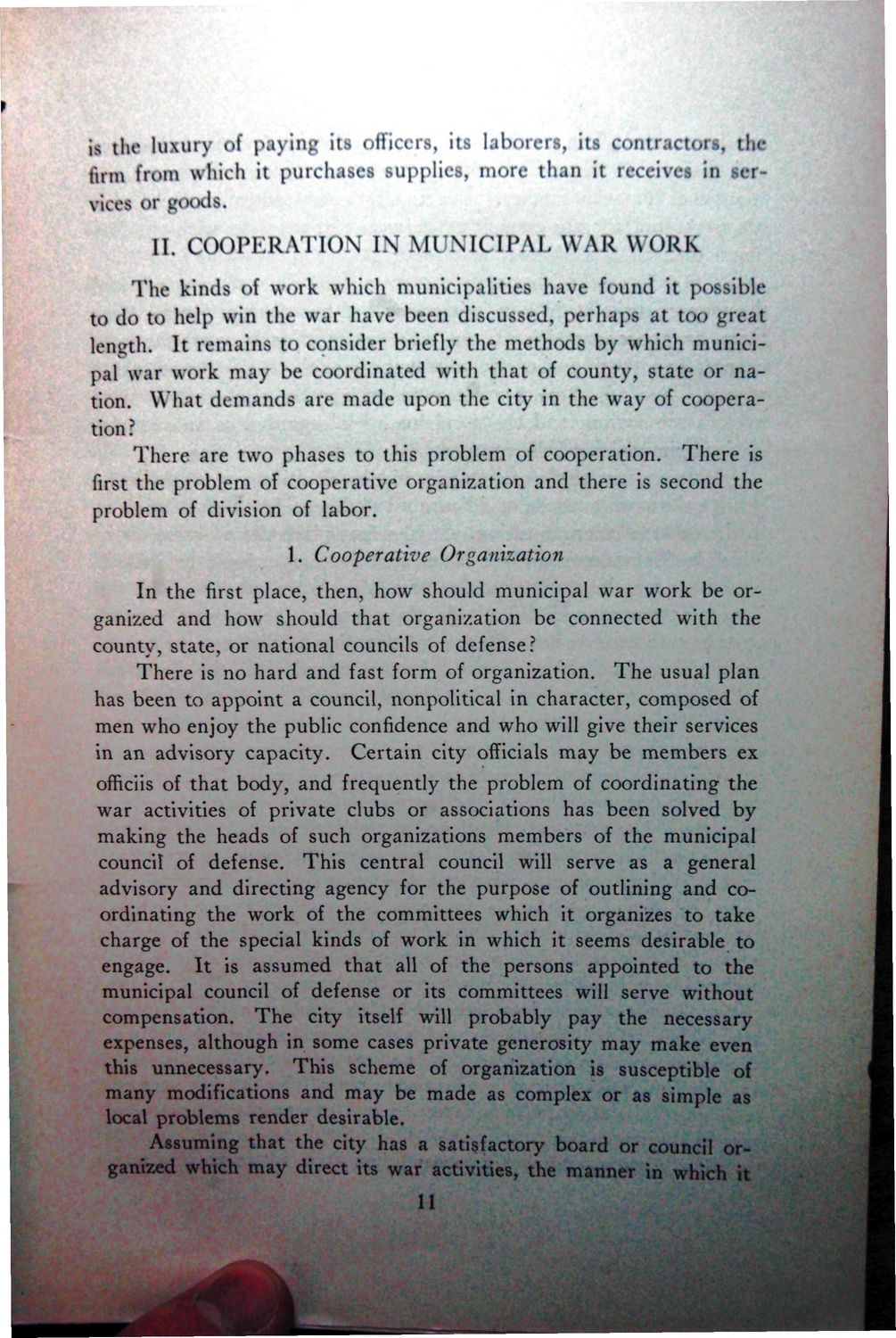| |
| |
Caption: War Publications - WWI Compilation 1923 - Article 3
This is a reduced-resolution page image for fast online browsing.

EXTRACTED TEXT FROM PAGE:
is ihc luxury of paying its officers, its laborers, its contractors, the firm from which it purchases supplies, more than it receives in services or eoikls. COO I The kinds of work which municipalities have found it possible to do to help win the war have been discussed, perhaps at too great length. It remains to consider briefly the methods by which municipal war work may be coordinated with that of county, state or nation. What demands are made upon the city in the way of cooperation: > There are two phases to this problem of cooperation. There is first the problem of cooperative organization and there is second the problem of division of labor. 1. Cooperative Organization In the first place, then, how should municipal war work be organized and how should that organization be connected with the county, state, or national councils of defense? There is no hard and fast form of organization. The usual plan has been to appoint a council, nonpolitical in character, composed of men who enjoy the public confidence and who will give their services in an advisory capacity. Certain city officials may be members ex officiis of that body, and frequently the problem of coordinating the war activities of private clubs or associations has been solved by making the heads of such organizations members of the municipal council of defense. This central council will serve as a general advisory and directing agency for the purpose of outlining and coordinating the work of the committees which it organizes to take charge of the special kinds of work in which it seems desirable to engage. It is assumed that all of the persons appointed to the municipal council of defense or its committees will serve without compensation. The city itself will probably pay the necessary expenses, although in some cases private generosity may make even this unnecessary. This scheme of organization is susceptible of many modifications and may be made as complex or as simple as local problems render desirable. Assuming that the city has a satisfactory board or council organized which may direct its war activities, the manner in which it 11 ^
| |